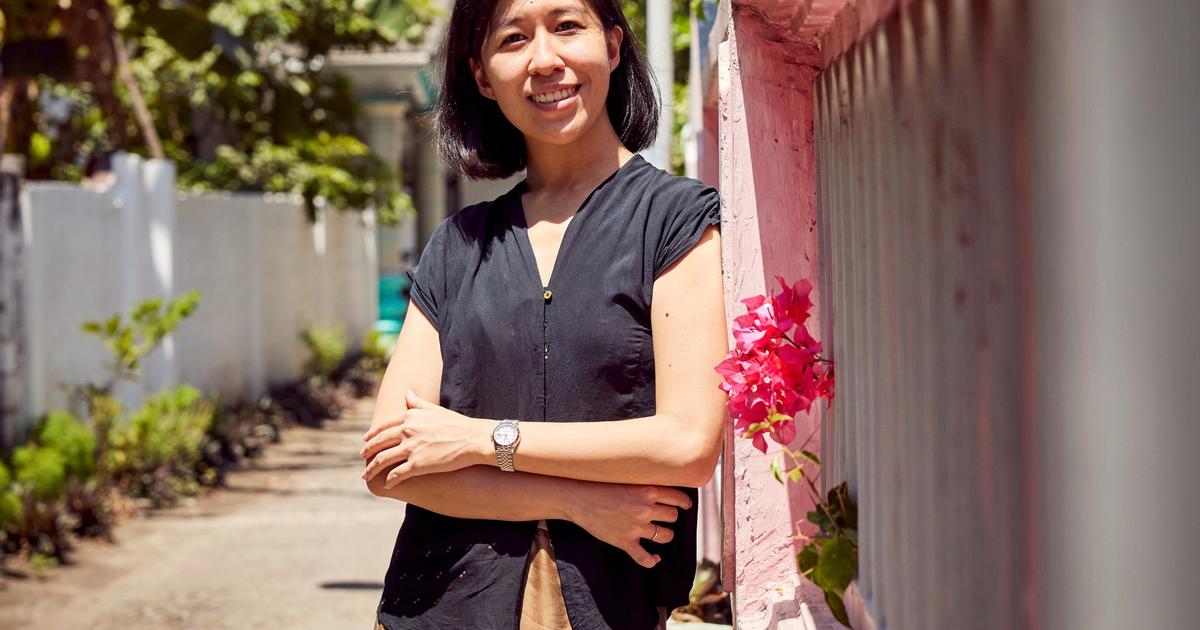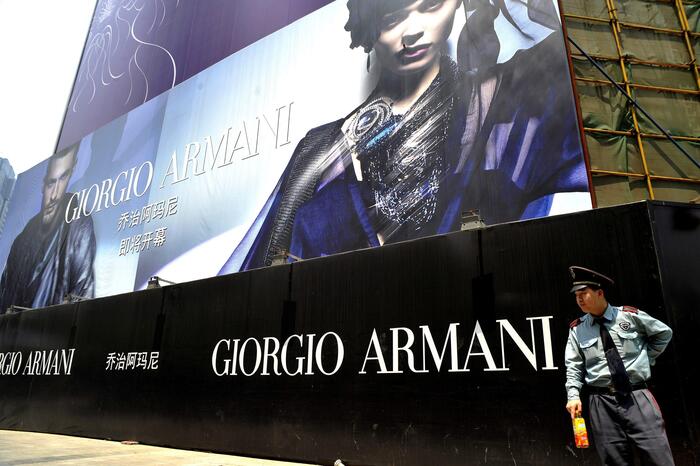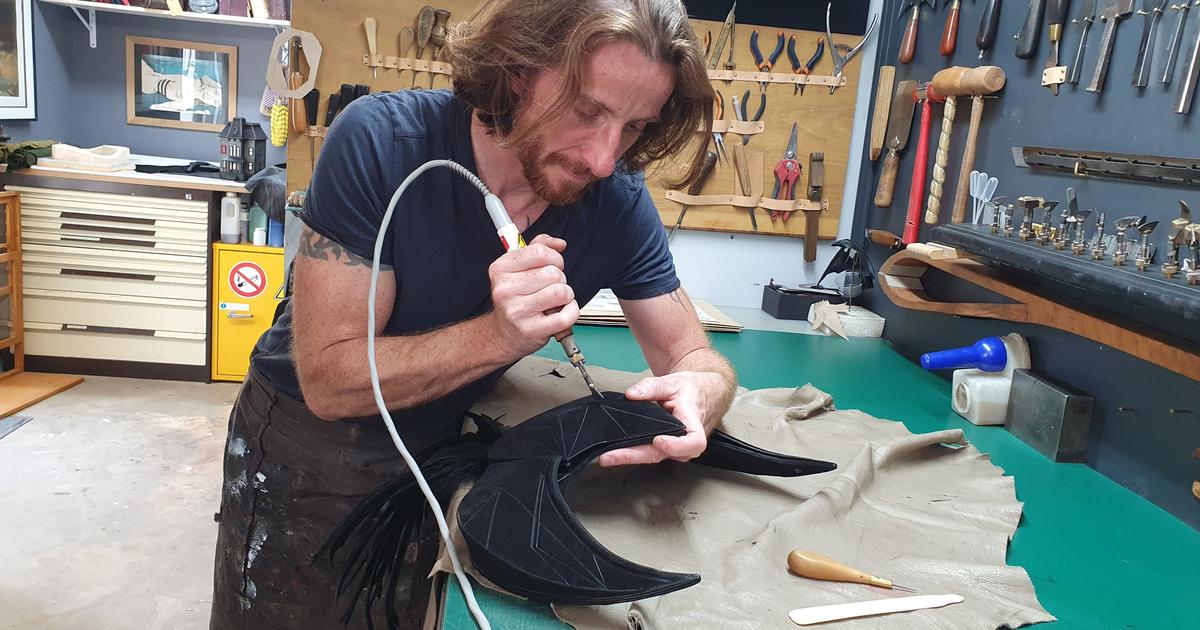The textile industry is notorious: for low wages, for precarious and dangerous jobs, for pollution. While many companies have responded to growing criticism from environmental organizations, human rights organizations and consumers, in voluntary commitments they promise more supply chain transparency or vendor wages.
But what are the warm words of the corporations worth?
The Swiss organization Public Eye has investigated the example of the world's largest fast fashion fashion group Zara and published the results. The organization bought a black hoodie with the imprint "RESPECT" and the sub-line: "Find out what it means to me" - a quote from the famous song by Aretha Franklin, the Public Eye understood as a call for research.
The organization, formerly the "Bern Declaration", is known for its research and campaigns on human rights issues. Among other things, it advocates more corporate responsibility and fair working conditions in the clothing industry. The association is independent and finances itself above all by the contributions of its approximately 25,000 members as well as by donations.
The "Respect" Hoodie, which Public Eye set itself, is part of the "Join Life" line of the Zara parent company Inditex, which should be particularly sustainable. And sustainability and transparency are obviously important to Inditex, or at least these words are in the 434-page annual report. The report dedicates almost 50 pages to the socially responsible supply chain and the "worker at the center".
Whatever is there, the business of the group is going well. 1,597,260,495 garments have been sold by Inditex in 2018, 70 percent of which through the Zara brand. Net profit: nearly 3.5 billion euros.
But what percentage of these numbers do the workers have? And: Are they treated with respect and paid decent?
The Chief Sustainability Officer answers only evasively
According to the label, the hoodie was made in Turkey - Public Eye wanted to know more and wrote to Zara Customer Service. According to the annual report, the company will provide information at any time "about the origin of our articles and about the conditions of the workers involved in their production". The questions of the Swiss organization: In which factory was the hoodie made, how are the working conditions there and where does the cotton come from?
Public Eye / Timmy Memeti
Label of the "Respect" Hoodie: Made in Turkey
It took ten weeks before a rather unsatisfactory answer came, which stated, among other things, that the cotton was 100% organically produced and certified.
The organization responded and contacted the Chief Sustainability Officer (CSO): "Does the cotton come originally from Turkey? In which factory was the thread spun, the fabric knitted, the sweater sewn? What do the workers earn there? "What price did Zara pay the garment supplier from the factory?"
Another four weeks later, the manager replies that the cotton comes from India and is processed into thread in Turkey, where the fabric is also woven, the pieces cut, the hoodie sewn together and finally printed.
How much Zara pays for the sweater and how high the wages of the workers along the supply chain are? The company gave no answer, but mentioned the names of the companies involved.
Research in factories in the Turkish city of Izmir
Public Eye researched the addresses of the participating factories and is on its way to the Turkish port city of Izmir. It turned out that the companies that Inditex had called actually made the hoodie. However, in the list a central middleman who acts as an agency for Inditex, assigns orders to the factories and for the report earns one to two euros per garment missing.
Public Eye / Timmy Memeti
Turkish port city of Izmir: "Aggressive Pricing" by Inditex
During the on-the-spot research, it becomes clear that Inditex has overwhelming market power with its large orders, thus determining the prices of fabrics, sewing and printing. The comparatively small sewing and textile printers are likely to rely on the Inditex orders - ideal conditions for the "aggressive pricing" of the textile giant, as Public Eye participants cited.
At first, the researchers do not learn much about the pay of the workers, they publish nothing about the situation in the factories in order not to endanger workers. Because even that is part of the truth: If Inditex would cancel the orders, the companies would probably be at the end.
A few numbers: According to Public Eye, the factory that produced the 20,000 "Respect" badges got around 9 Turkish lira apiece - that would be about $ 1.53. The printing house received around 17 cents apiece per print.
With low purchase prices, companies are likely to let their workers work longer or pay less. The only figures that Public Eye hears on the spot are monthly salaries for factory workers between 2,000 and 2,500 Turkish Liras (310 - 380 euros) - roughly equivalent to the Turkish minimum wage.
Organizations such as the Clean Clothes Campaign, on the other hand, charge a living wage - a wage that two adults and two children can live in dignity. According to the annual report, inditex actually wants to pay for this: with 6130 Turkish liras it is almost three times as high. One focus is "to achieve a living wage in industry through the empowerment and participation of the workers".
On request, Inditex points out that the worker is already paid more than the legal minimum wage, the wages mentioned by Public Eye are lower than in reality. Basically, higher wages are only achievable if the industry as a whole is more inclined to pay more.
Existence wages would be possible - without price increase
As far as the Turkish city of Izmir, the noble goals of the company have probably not materialized. On the contrary: According to research, some factory workers are employed on a daily basis only - they have no guarantee that they will get work again the following day. The fact that the working hours violate Turkish laws, seems almost incidental: A factory drives a 24-hour operation - in two shifts. Accordingly, the first lasts from 8:30 am to 7 pm, the second from 7 pm to 8:30 am - this also violates the regulations that Inditex makes for its suppliers.
A conclusion from Public Eye: The transparency evoked by Inditex is not enough to find out what conditions supply companies employ their workers.
Public Eye has therefore partnered with other organizations, including the Paris-based research office Le Basic. His team has calculated how to split the cost of the "Respect" hoodlum: Zara sells the hoodie for an estimated 22.22 euros excluding VAT. For the finished sweater, including imprint, the company probably pays around 7.76 euros. After deducting all costs, Zara's mother Inditex remains at a profit of 4.20 euros per piece. You can read the exact calculations in the photo gallery below or here. Inditex rejects the calculations as too low and accuses Public Eye of insufficient research. However, the company does not provide other figures.
According to estimates by the NGO, the price of the sweater would only increase by around € 3.62 if all those involved - from the workers in the Indian cotton fields to the textile printing industry - receive living wages. So the company could actually show respect for its workers without even raising the retail price by a penny. Only his own profit margin would shrink.















